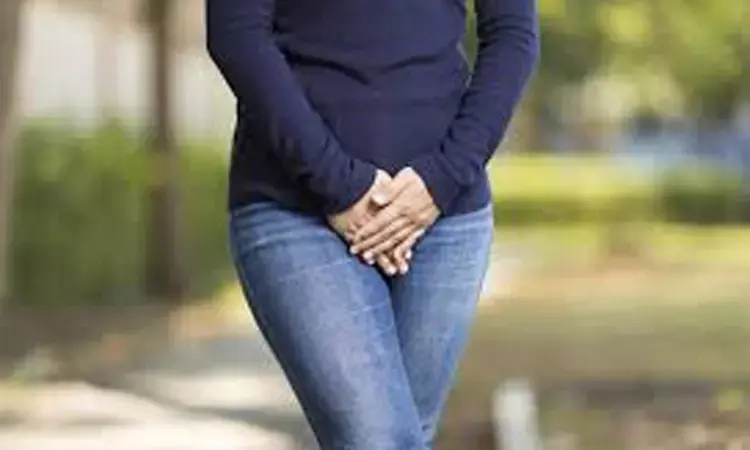- Home
- Medical news & Guidelines
- Anesthesiology
- Cardiology and CTVS
- Critical Care
- Dentistry
- Dermatology
- Diabetes and Endocrinology
- ENT
- Gastroenterology
- Medicine
- Nephrology
- Neurology
- Obstretics-Gynaecology
- Oncology
- Ophthalmology
- Orthopaedics
- Pediatrics-Neonatology
- Psychiatry
- Pulmonology
- Radiology
- Surgery
- Urology
- Laboratory Medicine
- Diet
- Nursing
- Paramedical
- Physiotherapy
- Health news
- Fact Check
- Bone Health Fact Check
- Brain Health Fact Check
- Cancer Related Fact Check
- Child Care Fact Check
- Dental and oral health fact check
- Diabetes and metabolic health fact check
- Diet and Nutrition Fact Check
- Eye and ENT Care Fact Check
- Fitness fact check
- Gut health fact check
- Heart health fact check
- Kidney health fact check
- Medical education fact check
- Men's health fact check
- Respiratory fact check
- Skin and hair care fact check
- Vaccine and Immunization fact check
- Women's health fact check
- AYUSH
- State News
- Andaman and Nicobar Islands
- Andhra Pradesh
- Arunachal Pradesh
- Assam
- Bihar
- Chandigarh
- Chattisgarh
- Dadra and Nagar Haveli
- Daman and Diu
- Delhi
- Goa
- Gujarat
- Haryana
- Himachal Pradesh
- Jammu & Kashmir
- Jharkhand
- Karnataka
- Kerala
- Ladakh
- Lakshadweep
- Madhya Pradesh
- Maharashtra
- Manipur
- Meghalaya
- Mizoram
- Nagaland
- Odisha
- Puducherry
- Punjab
- Rajasthan
- Sikkim
- Tamil Nadu
- Telangana
- Tripura
- Uttar Pradesh
- Uttrakhand
- West Bengal
- Medical Education
- Industry
Hormone Therapy Reduces frequency of night urination in Postmenopausal Women: Study

CLEVELAND, Ohio - Researchers have found in a new study that various types of hormone therapy are effective in reducing the effect of nocturia in postmenopausal women.
As women age, they are more likely to wake up in the middle of the night to pass urine. The loss of estrogen during the menopause transition accelerates this problem, which is known as nocturia. The researchers evaluated the effectiveness of different hormone therapies in managing the frequency of nocturia. The results of the study have been published in Menopause, the journal of The North American Menopause Society (NAMS).
The loss of estrogen during menopause has been shown to create bladder dysfunction, sleep disorders, hot flashes, and alterations in renal water and salt handling, all of which result in higher diuresis overnight. To date, there has been little research done regarding the effect of hormone therapy on nocturia, even though hormone therapy has been proven to improve the causative factors of postmenopausal nocturia such as sleep disorders, obstructive sleep apnea, and hot flashes.
Vaginal estrogen has already been shown to help manage the various symptoms of the genitourinary syndrome of menopause, especially with regard to improving urinary function. However, little was known about the effect of systemic treatment. In addition, there is some limited evidence suggesting significant benefits of using oral estrogen in combination with oral progesterone, but nothing is known about the effects of other hormone combinations or the newer tissue-selective estrogen complex (TSEC) on nocturia.
In this new study involving nearly 250 women, participants were divided into four treatment groups: estrogen and progesterone (E+P); estrogen only in patients with prior hysterectomies; TSEC; and no treatment. The study concluded that systemic treatment with either E+P or TSEC led to a significant reduction in nocturia prevalence and significant improvement of bothersome symptoms in women with two or more nocturnal voids. The use of estrogen only resulted in a significant reduction in urgency prevalence.
Researchers believe that additional research should be conducted to better understand the underlying pathophysiologic triggers.
Results are published in the article "Hormone therapy as a positive solution for postmenopausal women with nocturia: results of a pilot trial."
"This pilot study shows a significant reduction in the prevalence and bother associated with nocturia in postmenopausal women using systemic hormone therapy. Although additional study is needed, this finding appears to be primarily related to improvements in sleep quality," says Dr. Stephanie Faubion, NAMS medical director.
For more information about menopause and healthy aging, visit www.menopause.org.
Dr Kamal Kant Kohli-MBBS, DTCD- a chest specialist with more than 30 years of practice and a flair for writing clinical articles, Dr Kamal Kant Kohli joined Medical Dialogues as a Chief Editor of Medical News. Besides writing articles, as an editor, he proofreads and verifies all the medical content published on Medical Dialogues including those coming from journals, studies,medical conferences,guidelines etc. Email: drkohli@medicaldialogues.in. Contact no. 011-43720751


